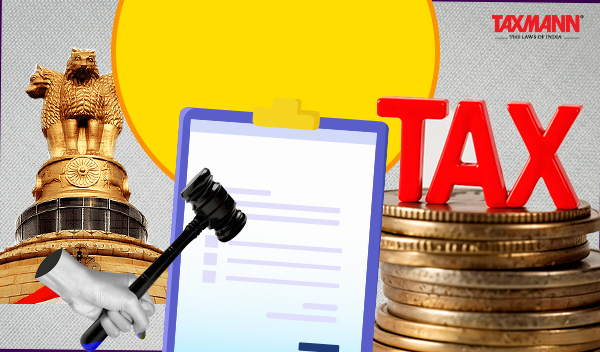Foreign Tax Credit Allowed Despite NIL Indian Tax Liability – Canon India ITAT Ruling
- Blog|News|Income Tax|
- 3 Min Read
- By Taxmann
- |
- Last Updated on 5 January, 2026

Hitesh Nahar – [2026] 182 taxmann.com 34 (Article)
Introduction
For years, Indian businesses with overseas operations have faced uncertainty under cross-border taxation.
The recent ruling of the Delhi Income Tax Appellate Tribunal in Canon India (P.) Ltd. v. Dy. CIT [2025] 180 taxmann.com 306 (Delhi – Trib.), decided on 10 November 2025 (ITAT Delhi – Bench D), has brought much-needed clarity to the long-debated issue of Foreign Tax Credit (FTC) in India. This decision is expected to influence tax positions adopted by Indian exporters with foreign income streams, which either enjoy tax holiday deductions or have brought forward losses.
This article focuses solely on the FTC mechanism and does not address interest-related aspects of tax refunds arising out of FTC addressed in this case law.
Facts of the Case
Canon India (“Company” or “Assessee”) earned income from Japan, where taxes of Rs. 20.39 crores were withheld in AY 2003-04. However, the company’s Indian tax liability was nil, the Japanese income was claimed as a deduction under Section 10A or absorbed by brought-forward business losses. When Canon claimed FTC, the tax authorities denied it, arguing that since there is no Indian tax liability, no FTC should be available in India. This created a double taxation situation where income was taxed in Japan, but credit was denied in India.
The Controversy in Brief
Revenue’s Stand: The Income Tax Department argued that Section 90 read with Article 23 of the India-Japan DTAA permits FTC only against Indian tax payable. The absence of any Indian tax liability leaves no scope for granting credit under either domestic law or treaty provisions. The Department relied on Bank of India v. Asstt. CIT [2021] 125 taxmann.com 155 (Mum. – Trib.) and other judicial precedent, which held that allowing FTC without Indian tax liability would mean subsidising foreign treasuries from the Indian exchequer, a result wholly impermissible in law.
Assessee’s Stand: Canon India argued that eligibility for FTC should be determined based on whether the income is “chargeable to tax” under Section 4 and forms part of the total income under Section 5 of the Income Tax Act, not whether any tax is ultimately payable in India. The company argued that disallowing FTC would lead to double taxation, defeating the fundamental purpose of tax treaties.
In support of its stance, Canon India placed reliance on key judicial precedents, including the Karnataka High Court’s ruling in Wipro Ltd. [Wipro Ltd. v. Dy. CIT 382 ITR 179 (Kar.)], the Delhi High Court’s decision in HCL Comnet Systems (Pr. CIT v. HCL Comnet Systems and Services Ltd. [IT Appeal NO. 546 of 2022, dated 23-11-2023], and other judicial judgments.
Tribunal’s Final Ruling
A key aspect of the Delhi ITAT’s decision in this matter was its reliance on the recent ruling of the jurisdictional Delhi High Court in HCL Comnet Systems and Services Ltd. (supra).
In HCL case, which examined with FTC claims relating to income eligible for deduction under Section 10A, the Delhi High Court expressly approved the Karnataka High Court’s view in Wipro Ltd. As a result, the ITAT held that with a binding jurisdictional decision now available of HCL Comet Systems, the issue was “no longer res integra” – no longer open to challenge within the Delhi jurisdiction.
Relying on the binding High Court precedent, the ITAT concluded that Canon India is entitled to full credit of taxes paid in Japan on export revenues from software sales. Such credit cannot be curtailed merely because the domestic tax liability is reduced to nil due to business losses or deductions under Section 10A.
The ruling underscores that the objective of tax treaties to eliminate double taxation must be interpreted purposively so that foreign taxes paid do not become a cost to the assessee.
Click Here To Read The Full Article
Disclaimer: The content/information published on the website is only for general information of the user and shall not be construed as legal advice. While the Taxmann has exercised reasonable efforts to ensure the veracity of information/content published, Taxmann shall be under no liability in any manner whatsoever for incorrect information, if any.

Taxmann Publications has a dedicated in-house Research & Editorial Team. This team consists of a team of Chartered Accountants, Company Secretaries, and Lawyers. This team works under the guidance and supervision of editor-in-chief Mr Rakesh Bhargava.
The Research and Editorial Team is responsible for developing reliable and accurate content for the readers. The team follows the six-sigma approach to achieve the benchmark of zero error in its publications and research platforms. The team ensures that the following publication guidelines are thoroughly followed while developing the content:
- The statutory material is obtained only from the authorized and reliable sources
- All the latest developments in the judicial and legislative fields are covered
- Prepare the analytical write-ups on current, controversial, and important issues to help the readers to understand the concept and its implications
- Every content published by Taxmann is complete, accurate and lucid
- All evidence-based statements are supported with proper reference to Section, Circular No., Notification No. or citations
- The golden rules of grammar, style and consistency are thoroughly followed
- Font and size that’s easy to read and remain consistent across all imprint and digital publications are applied



 CA | CS | CMA
CA | CS | CMA
